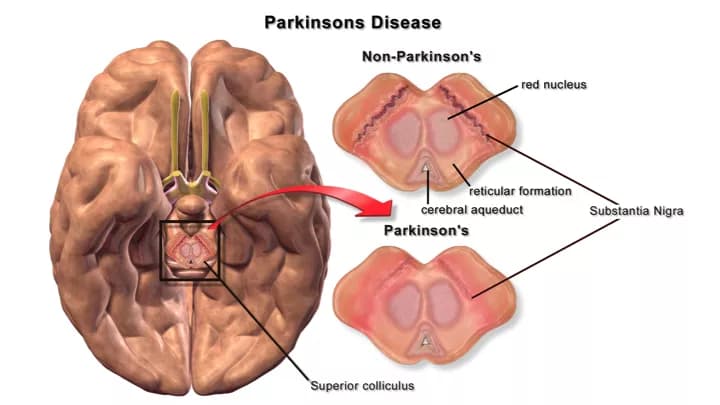
Trial Helps Doctors Tell Lewy Body Dementia From Alzheimer's, Parkinson's
Knowing that many clinicians find it difficult to correctly diagnose patients with Lewy body dementia, researchers at The Ohio State University Wexner Medical Center set out to develop a clinical profile for these patients. Their findings are published online in the Journal of Alzheimer's Disease.
The study compared 21 patients with Lewy body dementia to 21 patients with Alzheimer's disease and 21 patients with Parkinson's disease. The patients were carefully matched by age, gender, education, race, degree of cognitive impairment, and degree of motor (physical) impairment. Pairs were compared using cognitive, functional, behavioral and motor measures.
"Many clinicians find it difficult to diagnose Lewy body dementia patients, often confusing them and misdiagnosing them as Alzheimer¹s disease or Parkinson¹s disease patients. Our study findings showed that the clinical profiles of Lewy body dementia patients can be differentiated from Alzheimer's and Parkinson's patients," said Dr. Douglas Scharre, director of the division of cognitive neurology at Ohio State's Wexner Medical Center and principal investigator of the study. "Since treatments and prognosis differ between these conditions, it's important to correctly diagnose the patient from the start."
Researchers with Ohio State's Center for Cognitive and Memory Disorders found that the diagnosis is likely Lewy body dementia if the patient is characterized by a specific cognitive profile (retrieval memory disturbance and deficits in visuospatial and executive domains), along with axial (trunk/body) posture impairments & gait/balance instability. Compared to Alzheimer's patients, Lewy body dementia patients have more executive and visuospatial deficits and less amnesia and disorientation, and also show more daytime sleepiness, cognitive/behavioral fluctuations, hallucinations and obstructive sleep apnea than either Alzheimer's or Parkinson's patients. Significant correlations were noted between axial motor, balance and gait disturbances and executive functioning, visuospatial abilities and global cognitive deficits.
Lewy body dementia is characterized by Parkinsonism (stiffness and trouble with gait), memory loss, and visual processing difficulties. Fluctuations and visual hallucinations are not uncommon. Mental degradation progresses as in people with Alzheimer's disease. The disease usually appears after age 60.
Lewy bodies are collections of proteins (alpha-synuclein) that accumulate abnormally in the brain, that are not typically seen in Alzheimer's, and are deposited in different parts of the brain than in Parkinson's. These toxic alpha-synuclein proteins accumulate gradually, impact specific brain regions leading to its unique clinical symptoms and disease course, and need to be treated and managed differently than those with Alzheimer's or Parkinson's.
"It's vitally important that patients are correctly diagnosed so that they can be prescribed the proper medications that may help slow down the course of the disease or improve symptoms," Scharre said. The correct diagnosis of Lewy body dementia will prompt evaluation and treatment for commonly co-existing associated conditions such as autonomic conditions, sleep apnea, REM sleep behavior disorder, fluctuations of attention and alertness, gait disturbance and fall risk.
This research is supported by a grant from the Mangurian Foundation.
Other Ohio State researchers involved in the study include Shu-Ing Chang, Haikady N. Nagaraja, Ariane Park, Anahita Adeli, Punit Agrawal, Anne Kloos, Deb Kegelmeyer, Shannon Linder, Nora Fritz, Sandra K. Kostyk, and Maria Kataki.
Materials provided by The Ohio State University Wexner Medical Center. Note: Content may be edited for style and length.
Disclaimer: DoveMed is not responsible for the adapted accuracy of news releases posted to DoveMed by contributing universities and institutions.
Primary Resource:
Scharre, D. W., Chang, S. I., Nagaraja, H. N., Park, A., Adeli, A., Agrawal, P., ... & Kostyk, S. K. (2016). Paired Studies Comparing Clinical Profiles of Lewy Body Dementia with Alzheimer’s and Parkinson’s Diseases. Journal of Alzheimer's Disease, (Preprint), 1-10.
Related Articles
Test Your Knowledge
Asked by users
Related Centers
Related Specialties
Related Physicians
Related Procedures
Related Resources
Join DoveHubs
and connect with fellow professionals

0 Comments
Please log in to post a comment.